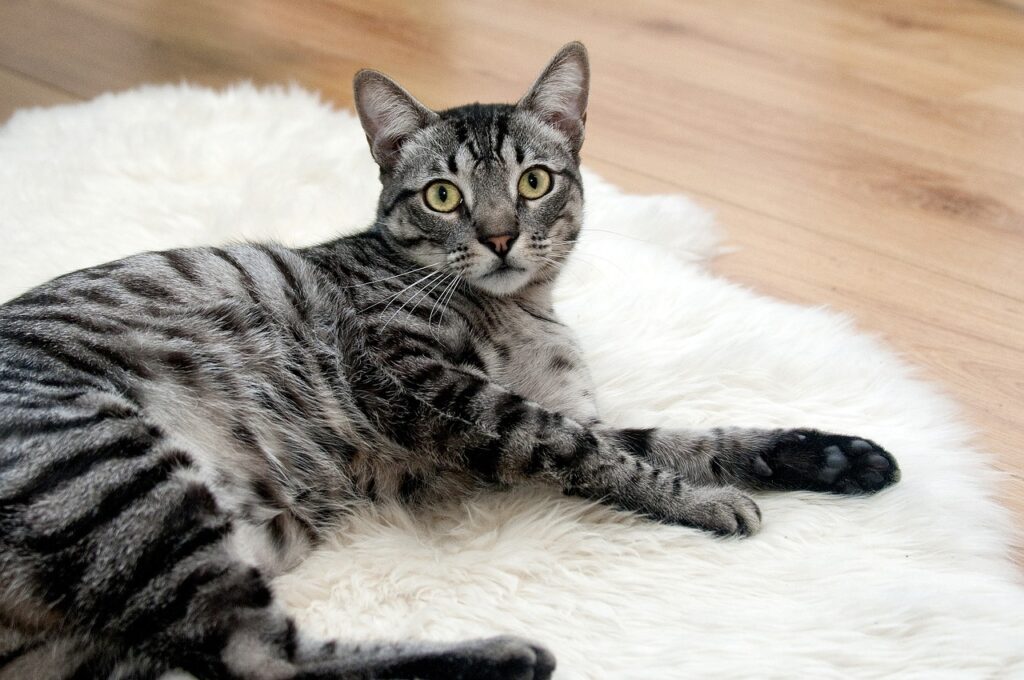Can Cats Eat Cheese? – No, They can’t
Many of us adore treating our furry friends with little bits from our plates. However, when it comes to cats, cheese is a no-go. Despite the popular image of cats lapping up milk and enjoying dairy, these products can actually lead to digestive problems. Cats often become lactose intolerant as they grow, meaning their bodies can’t properly digest lactose found in dairy products like cheese. This can result in stomach upset, diarrhea, or vomiting.
Can Kittens Eat Cheese?
Just like adult cats, kittens are also generally lactose intolerant. Feeding cheese to kittens is not recommended as their digestive systems are even more delicate. While they initially drink their mother’s milk, the lactose in it is different from cow’s milk and they typically lose the enzyme to process it shortly after weaning.
Things to consider when feeding cheese to kittens?
Introducing unfamiliar foods such as cheese to kittens could not only cause gastrointestinal upset but also distract them from eating their core, nutrient-rich diet. Kittens need specific nutrients for growth and development that cheese just can’t provide. So, it’s best to stick to a high-quality kitten food recommended by your veterinarian.
Nutritional Benefits of Cheese for Cats – Why Cheese is No Good for Cats
Protein
Cheese is high in protein, which cats require. However, the protein in cheese is not in an ideal form for cats and can contribute to an unbalanced diet.
Fats
While cats need fats in their diet, the fats in cheese can be hard for them to digest and could lead to weight gain and obesity.
Calcium and Phosphorus
These minerals are important for cats, but the ratios in cheese are not tailored for feline needs and can disrupt their dietary balance.
Vitamins
Cheese contains vitamins such as A and B complexes, but these are better obtained through a complete and balanced cat food.
Lactose
Lactose is a sugar that can lead to digestive issues in lactose intolerant animals, including most cats. Cheese is a dairy product, thus it contains lactose, which is disadvantageous for cat health.
Potential Allergies: Can Cats Be Allergic to Cheese?
Though not common, cats can be allergic to any food, including cheese. An allergy would be an overreaction of their immune system to a protein found within the cheese.
Symptoms of Cheese Allergies in Cats
- Gastrointestinal issues: Watch for signs like vomiting or diarrhea after cheese consumption.
- Itchy skin: Allergic reactions may cause skin irritation and excessive scratching.
- Respiratory trouble: In rare cases, a serious allergic reaction could lead to coughing or wheezing.
What to Do If Your Cat Shows Symptoms?
- Consult a vet: If your cat shows any signs of an allergic reaction, the safest bet is to consult your veterinarian.
- Food elimination diet: Your vet might recommend an elimination diet to pinpoint exactly what’s causing the reaction.
- Immediate care: For severe reactions, like difficulty breathing, seek immediate veterinary care.
Recommended Amount: How Much Cheese Can a Cat Consume?
As cheese is generally not recommended for cats due to lactose intolerance and potential health risks, there is no safe recommended quantity or frequency for consumption.
Things to Consider When Feeding Cheese to Cats
If you do choose to give your cat cheese, use it very sparingly and infrequently as a high-value treat, and observe your cat closely for any adverse reactions.
How to Feed Cheese to Cats: A Quick Guide
While it’s best to avoid feeding cheese to your cat, if you decide to offer this treat, ensure it’s a very small amount and not a regular part of their diet. Monitor your cat for any signs of digestive distress or allergic reactions.
Simple Cheese Treat
Offer a tiny crumb of hard cheese. Avoid soft cheeses or those with herbs and other additives that could be harmful.
Cheese-Flavored Cat Treats
Opt for commercially available cheese-flavored treats that are formulated specifically for cats and are safer with controlled lactose content.
Homemade Cheese-Infused Treats
For a homemade option, you can bake tiny bits of cheese into cat-friendly biscuits, ensuring that cheese is not the primary ingredient.
Conclusion
In conclusion, while cheese is a tasty human snack, it does not align with the dietary requirements of cats. As responsible pet owners, we should focus on providing a balanced diet specifically formulated for cats to promote their health and happiness.



